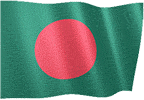Course Content
Semester I
Module 1 : Theory
SPA.101 Structure, Composition and Dynamics of Planetary Atmospheres
SPA.102 Ionospheric Physics
SPA.103 Electromagnetic Wave Propagation and Antennas
SPA.104 Measurement Techniques
SPA.105 Basics of Space Technology I
Module 2 : Practical (Any 6 from the following)
1. Operation of Langmuir Probe
2. Ionospheric Sounding using an Ionosonde
3. Surface Monitoring of Ozone
4. Optical Imaging of Plasma Depletions
5. Characterization of Interface Filters
6. Optical Depth Measurement Using Filter Photometer
7. Balloon borne measurements of Atmospheric Ozone
8. Total Electron Content measurements using GPS receiver
9. Measurements of Aerosols by Micro pulse Lidar
Semester II
Module 3 : Theory
SPA.101 Solor Wind, Magnetosphere and Space Weather
SPA.102 Astronomy & Astrophysics I
SPA.103 Astronomy & Astrophysics II
SPA.104 Basics of Space Technology II
SPA.105 Pilot Project
Module 4 : Practical (Any 6 from the following)
1. Photometry of Binary Stars
2. Interferometric Study of Planetary Nebulae
3. Mass of aerosols using QCM
4. Modeling Expt. On Atmosphere / lonosphere
5. Radio Pulsars Studies using GMRT / OSRT
6. Study of Solar Spectrum
7. Spectral characteristics of Fabry-Perot Etalon for Thermospheric studeis
8. Solar Flare Studies using Solar X Ray Instrument (SOXS)
9. Studies of sub millimeter wave (SMM) Receiver
10. Photoionization studies using Recoil Ion Momentum Spectrometer
Module 5: Pilot Project
This module on the Pilot Project will be assigned one day per week during semester II and two weeks time after completion of semester II examinations for completion followed by submission. The candidate has to give a presentation on the pilot project which would evaluated by a panel of experts. The aim of this module is to ensure that
-
The one year project work, which has to be done in the home country of the participant, is finalized in consultation with both the supervisors.
-
That some ground work is done for the one year project work, in terms of identifying and procuring the necessary data, software, literature, etc.
-
The participant has developed reasonable depth of understanding of the field under the guidance of the Indian supervisor.
This also ensures that on returning back home country, the participant can start the research project right away.
Detail Course Syllabus
Faculty
The faculty for the course constitutes experts in different fields drawn from the Physical Research Laboratory, Ahmedabad, a number of ISRO centers and various research institutes and universities in India and abroad. The core faculty has a strong scientific background with a number of publications, experience of participating in international scientific programs, organizing a number of courses/ workshops/symposia, etc. to their credit. A few visiting international experts will also invited to deliver lectures.
Evaluation Procedure
The performance of the participants in the Centre's programs will be assessed through oral presentations, seminars, computer-assisted interactive assessments at periodic intervals during the course apart from the semester end examinations. Overall grades would be awarded based on total performance during the course by giving appropriate weight to all the modes of evaluation.
Facilities
Physical Research Laboratory, Ahmedabad is the premier institution of space research in India. A number of sophisticated experiments like a digital ionosonde, high power lidar, optical instruments for photometry, spectrophotometry and imaging of day/night airglow emissions, instruments for surface/in-situ measurements of ozone, aerosols, trace gases, conductive, electric fields in the middle atmosphere and of electron density, ion-neutral composition and electric fields in the ionosphere, to name a few, form the backbone of the current space research activities of PRL. Computer facilities include a number of high power workstations with a large number of PCs connected through network with connectivity to internet. PRL hosts an excellent library with a large collection of books and periodicals in varied fields of Space and Atmospheric Science.



















